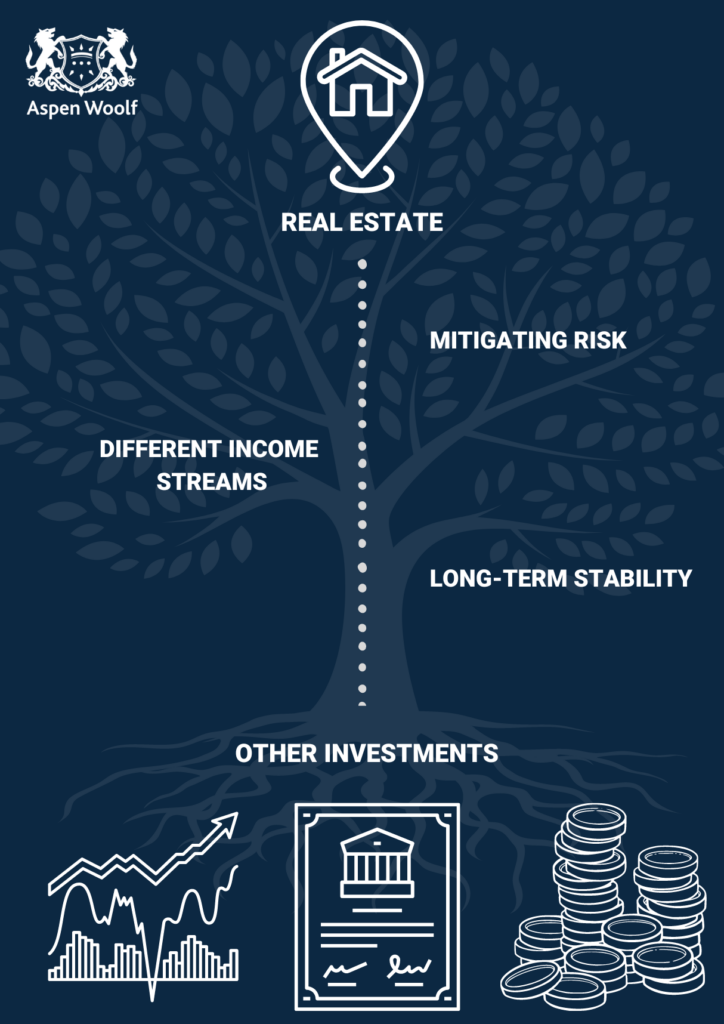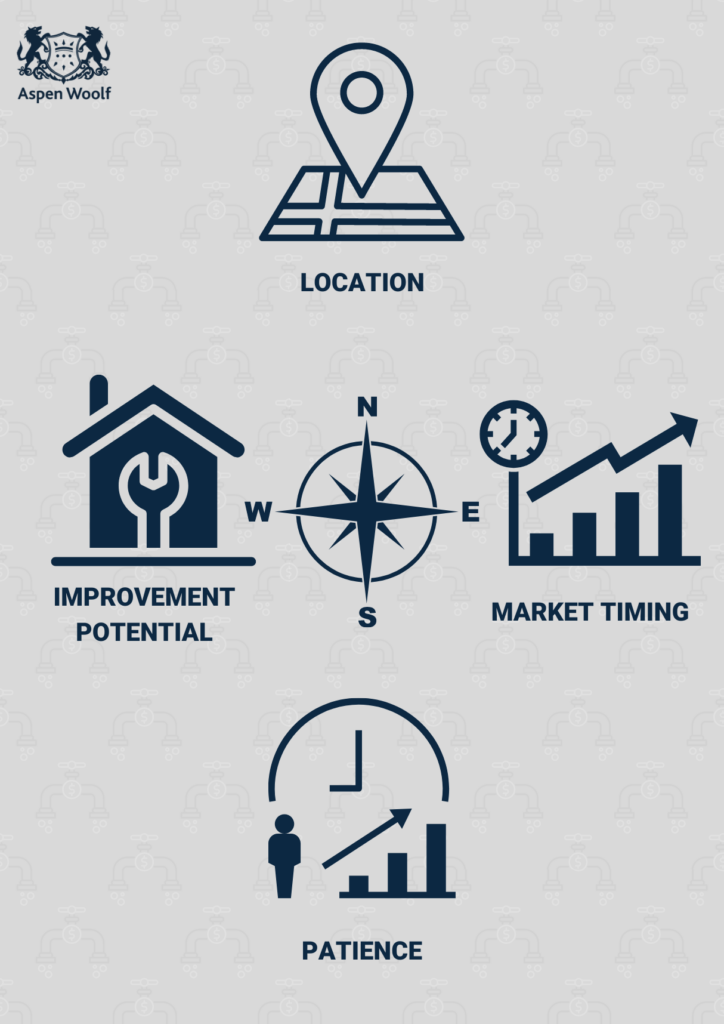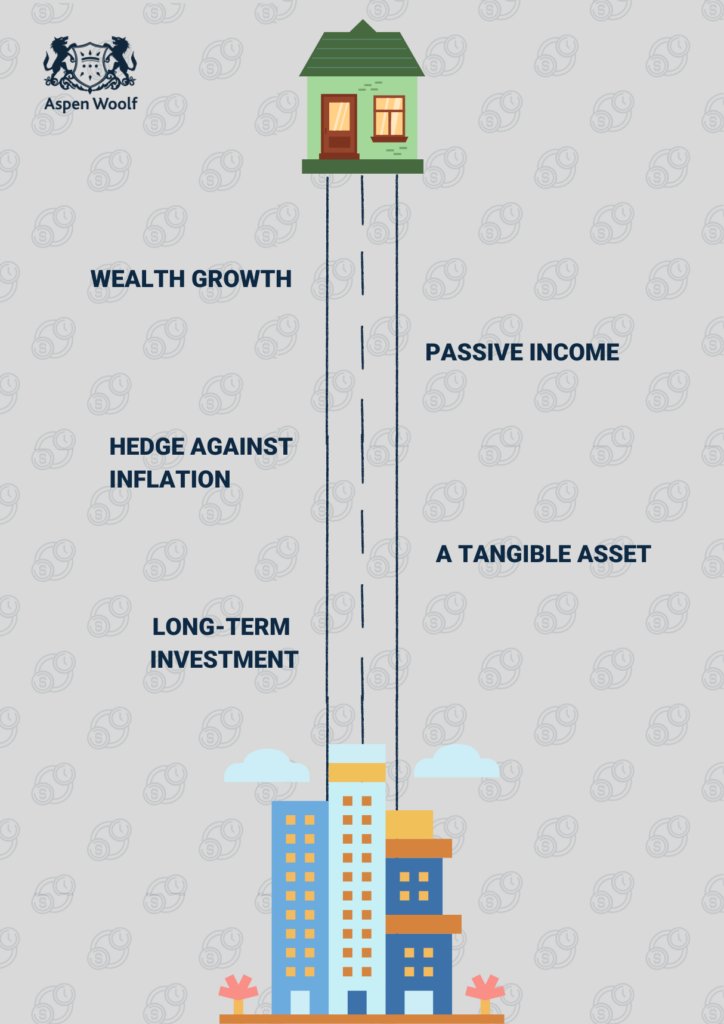Capital Appreciation and the Path to Growing Wealth in the UK

In real estate investment, capital appreciation is key to building a successful portfolio and generating financial gains over time.
With property values experiencing remarkable growth over the past decade, capital appreciation and rental income present an enticing opportunity for immediate returns and long-term wealth for investors.
In this article, we look at the nuances of capital appreciation, the key to successful real estate investment, tips for first-time investors and what a good return on investment might look like.
What is Capital Appreciation, and How Does it Apply to Property?
Capital appreciation is the difference between the purchase price and the selling price of an investment. Most people invest in property for the capital appreciation they can gain.
In the last 10 years, the average property price in England and Wales has risen by £72,000. This increases to over £100,000 in the South East and South West of England, and London has seen prices increase by 66%.
The Potential Rewards: Exploring Real Estate’s Lucrative Side
Capital appreciation is a significant factor in real estate investment, contributing to the popularity of real estate as an investment asset class. Here’s why capital appreciation is important and why it makes real estate investment popular:
Wealth Growth:
When a property appreciates in value, the owner’s equity in the property also increases. As the value of the property appreciates over the years, investors can build long-term wealth.
Passive Income:
While capital appreciation is a primary goal, investing in property also provides the opportunity to generate rental income. Property can appreciate in value while generating regular rental income, giving investors short-term cash flow and long-term growth potential.
Hedge Against Inflation:
As the cost of living rises, the value of real estate also tends to increase, helping to maintain an investor’s purchasing power.
A Tangible Asset:
Unlike stocks, real estate provides investors with a physical asset that can be improved and maintained, adding to its appeal.
Long-Term Investment:
Capital appreciation in real estate is often realised over the long term. This makes it appealing to investors looking for steady growth over extended periods instead of quick gains.
Market Factors and Timing: The Key to Successful Real Estate
Something investors should note is that the property market is cyclical, and a downturn usually follows an upswing in prices, then, this cycle repeats itself.
Periods of declining property prices present more favourable opportunities for property investment. The most opportune time to invest is when prices have reached their lowest point. Property values are reduced, buyer competition decreases, and investors can usually find favourable deals.
Successful investors take a long-term capital appreciation view of their investment and can weather the downturn until property prices eventually rebound.
Diversification: Balancing Property with Other Investment Options
Investing in different asset classes is key for investors to create a resilient and balanced portfolio that navigates changes in the market.
As well as real estate, savvy investors put their money into other investments to reduce risk and generate higher returns. Here are a few of the benefits of balancing a property investment with other investment types:

Mitigating risk:
Diversifying a portfolio by combining property with other investments like stocks and shares helps reduce risk. Real estate’s performance may not correlate directly with other asset classes, reducing market volatility’s impact on an investor’s overall returns.
Different Income Streams:
Incorporating real estate alongside traditional investments provides a diversified income mix. Stocks and bonds deliver yield dividends and interest, and property can contribute rental income, giving a reliable source of income streams.
Long-Term Stability:
Property has relatively stable, long-term growth potential, which can complement the short-term volatility of other investments like stocks.
Navigating the Housing Market: Tips for First-Time Property Investors
For investors that want to get the highest capital appreciation with their property, here are some factors to take into consideration:
Location:
Investors should find properties in areas with growth potential, such as emerging neighbourhoods or regions and cities undergoing regeneration. Choosing locations with improving infrastructure, amenities and job opportunities can lead to accelerated asset appreciation.
Improvement Potential:
Capital appreciation strategies can include identifying properties that offer opportunities for value-enhancing renovations like modernising kitchens or landscaping, which can significantly boost a property’s market value.
Market Timing:
By keeping an eye on the market, investors can choose the optimal time to invest in an asset appreciation property. Buying when there is less competition and when property prices are lower means the potential to sell for a higher profit.
Long-Term Approach:
Property values tend to appreciate over time, and holding onto an asset through market fluctuations can yield investors substantial gains when the market rebounds.
What is the Return on Investment (ROI) in Real Estate?
Real estate investments should be viewed as long-term endeavours. Generally, a 5-8% ROI is desirable on a capital appreciation investment property. Capital appreciation of property per annum will vary based on market conditions and property type.
Several elements contribute to the calculation of a property’s ROI:

- Rental Income: Revenue generated from renting out the property to tenants adds to a return on investment. It’s important to factor in potential vacancy periods when calculating ROI.
- Appreciation: The increase in the property’s value over time can be a significant source of ROI, especially in areas with substantial real estate market growth.
- Expenses: Property management fees, maintenance costs, property taxes, insurance, and other ongoing expenses associated with owning and maintaining the property will impact a property’s ROI. Investors need to calculate the projected cost of fees before making any investment.
- Mortgage: If the property was purchased with a mortgage, the interest payments on the loan should be subtracted from the property ROI calculation.
Which City has the Highest Property ROI?
There’s no definitive or set capital appreciation rate. However, according to Savills, the North West region is poised for an 18.8% surge in average property prices by the year 2026. This places Manchester in line with Yorkshire (18.2%) and Humber (17.6%) in terms of anticipated growth.
Manchester is ahead of the UK’s average five-year growth rate of 13.1%. These figures paint an optimistic picture of Manchester’s property market, making it a top spot in the UK market.
Oxford Economics also predicts that Manchester will have the highest economic growth of all UK cities over the next five years, with a growth rate of 16.4%. The city has been tagged as a top contender for startups and businesses, with projects like Spinningfields and MediaCityUK opening the door to well-paying jobs.
Which Real Estate Investment is Best?
The capital value of a property will vary based on several factors. There are several types of real estate investment, the most common include:
- Residential Real Estate: This involves investing in single-family homes and apartments and generating income by renting these properties to tenants.
- Commercial Real Estate: Commercial properties include office buildings, retail spaces and warehouses, with the income created from leasing these spaces to businesses.
- Holiday and Short-Term Rentals: Vacation homes or Airbnb rentals generate income through short-term rentals to travellers and remote workers.
When it comes to which is best, that depends on your circumstances. Residential property makes a great property investment for those seeking an appreciation of capital. As well as raising capital gains, investors can take advantage of passive income through monthly rent.
In July 2023, the average rent price in the UK for July 2023 was £1,243. Every region in the UK has seen an annual rent increase this year, making residential property investment a potentially lucrative avenue.
Conclusion
Understanding capital appreciation in regard to property investment is essential for real estate investors. Over the past decade, property values in England and Wales have surged, showcasing the potential for substantial wealth growth. To find out more about capital appreciation and real estate in the UK, get in touch with our experts.


